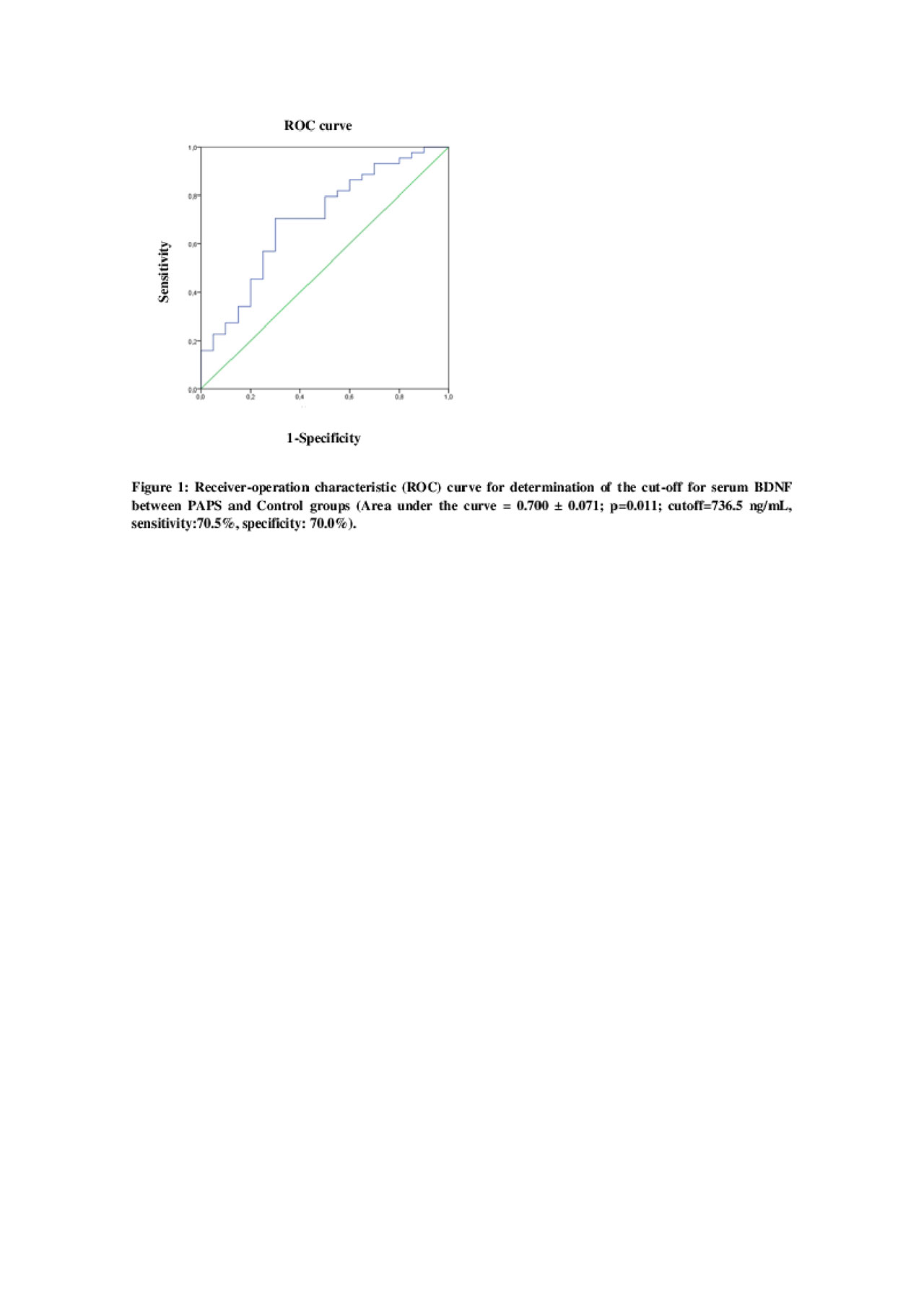Session Information
Session Type: ACR Abstract Session
Session Time: 2:30PM-4:00PM
Background/Purpose: Cognition dysfunction (CD) is a poorly understood non-stroke central neurologic manifestation of antiphospholipid syndrome, whose diagnosis involves a specific neuropsychological (NP) evaluation. Brain-derived neurotrophic factor (BDNF) is a protein that plays an important role in neural plasticity, and could potentially be a biomarker of CD in primary antiphospholipid syndrome (PAPS). Our aim was to assess CD in PAPS patients and to evaluate its association with clinical data, antiphospholipid antibodies and serum BDNF levels.
Methods: This is a cross-sectional study that compared 44 PAPS patients (according to Sydney´s criteria) and 20 healthy controls matched for age, gender and education. PAPS patients and controls underwent a standardized cognitive examination. The demographic, clinical, and laboratorial characteristics of patients were recorded. Serum BDNF was measured by sandwich ELISA.
Results: Fourteen of the 44 (31,8%) PAPS patients had cognitive impairment compared with only 1 (5%) healthy control (p=0.019). The most common cognitive domains involved were verbal memory, executive function and attention. PAPS patients presented lower serum levels of BDNF compared to controls (p=0.007) and it was associated with CD (p=0.032). The calculated cut-off value of serum BDNF was 736.5 ng/mL with sensitivity of 70.5% (CI95% 0,54-0,83), specificity of 70.0% (CI95% 0,45-0,88) and accuracy of 70.3% (CI95% 0,57-0,81)(Figure 1). In a multivariate logistic regression stroke (OR 137.06; 95%CI, 4.73-3974.32; p=0.004), seizure/ epilepsy (OR 15.25; 95%CI, 0.65-356.37;p=0.090) and serum BDNF (OR 0.66; 95%CI, 0.41- 1.07;p=0.091) were independently associated with CD in PAPS.
Conclusion: Cognitive dysfunction is frequently diagnosed late in PAPS patients. The association of CD and low serum BDNF levels suggests that this neurotrophin can be a potential biomarker for predicting early cognitive dysfunction.
To cite this abstract in AMA style:
Rosa R, Remião Ugolini-Lopes M, Gandara A, Campanholo K, Dutra L, Andrade D. Cognitive Dysfunction (CD) and Serum Levels of Brain-Derived Neurotrophic Factor (BDNF) in Primary Antiphospholipid Syndrome (PAPS) [abstract]. Arthritis Rheumatol. 2019; 71 (suppl 10). https://acrabstracts.org/abstract/cognitive-dysfunction-cd-and-serum-levels-of-brain-derived-neurotrophic-factor-bdnf-in-primary-antiphospholipid-syndrome-paps/. Accessed .« Back to 2019 ACR/ARP Annual Meeting
ACR Meeting Abstracts - https://acrabstracts.org/abstract/cognitive-dysfunction-cd-and-serum-levels-of-brain-derived-neurotrophic-factor-bdnf-in-primary-antiphospholipid-syndrome-paps/

